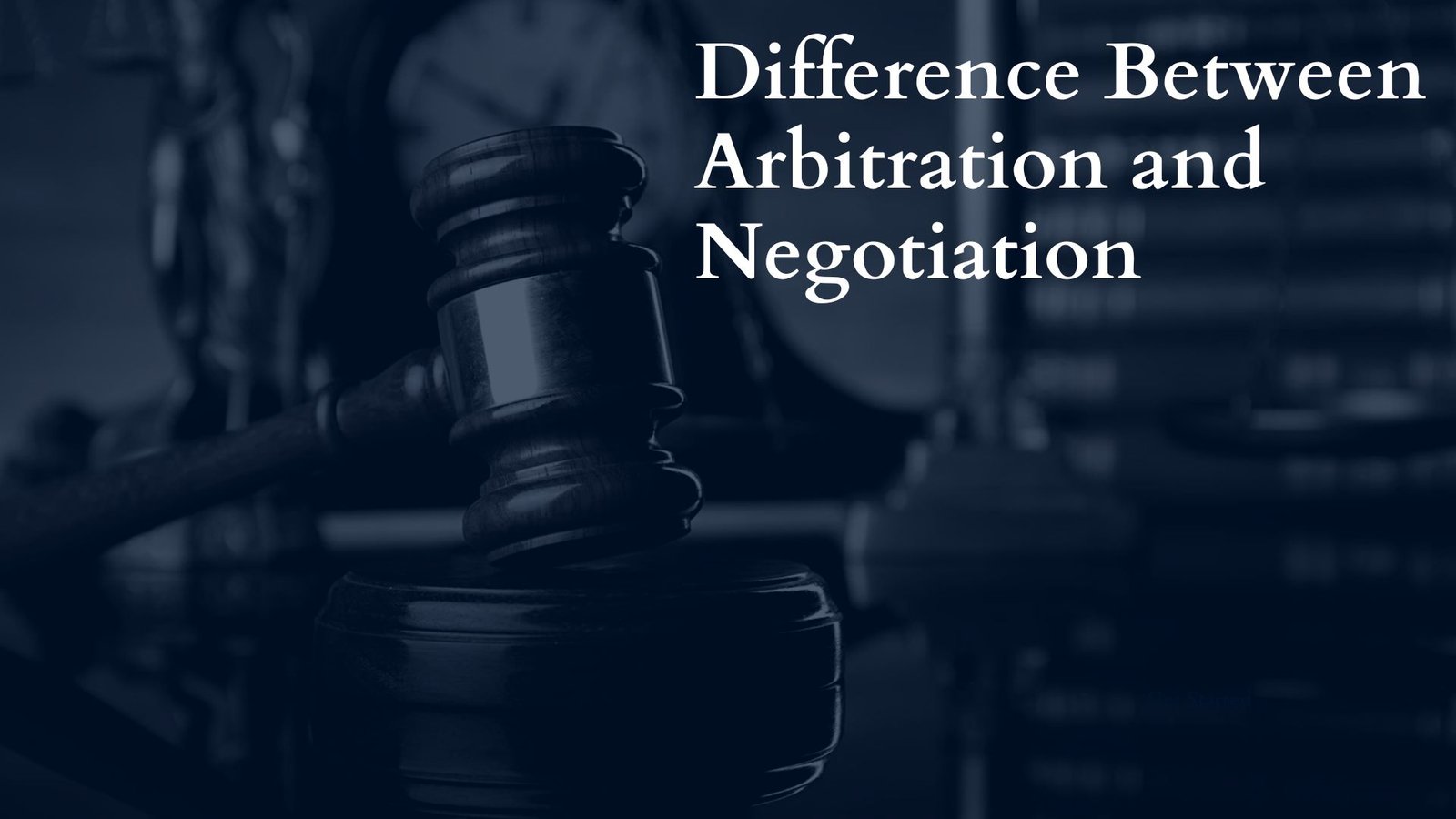On this page you will read detailed information about Arbitration Agreements.
As a business owner, you should understand the important role that arbitration agreements can play in your operations. An arbitration agreement is a contract between two or more parties to settle disputes through private arbitration rather than litigation. Entering into arbitration agreements with employees, partners, vendors, and customers can help reduce legal costs, minimize disruption, and resolve issues confidentially. However, there are several factors you must consider before implementing arbitration agreements in your business. Understanding the definition, key uses, and important considerations around arbitration agreements will empower you to make the best decisions for your company.
What is An Arbitration Agreement?

Arbitration agreements are legally binding contracts where two parties agree to resolve any disputes through arbitration instead of litigation. Arbitration is an alternative dispute resolution process where an arbitrator, instead of a judge or jury, reviews evidence and arguments from both sides and issues a final and binding decision.
Considerations When Drafting Arbitration Agreement
When drafting an arbitration agreement, parties should carefully consider:
Scope – Specify what types of disputes will be resolved through arbitration. Narrowly tailor the scope to meet the parties’ needs.
Applicable law – Choose which laws and jurisdiction will govern the agreement and any arbitration proceedings. This provides guidance to the arbitrator.
Arbitrator selection – Include a method for choosing a qualified arbitrator acceptable to both parties. If not specified, arbitration organizations will select the arbitrator.
Arbitration rules – Adopt established rules from organizations like the American Arbitration Association or JAMS to ensure fair procedures are followed. Rules cover aspects like discovery, evidence, and appeals.
Enforceability – Consult an attorney to draft an agreement that will be legally enforceable in the relevant jurisdictions. Requirements vary in different areas.
Costs – Allocate or specify a method for allocating any fees charged by the arbitration organization and arbitrator. Fees can often exceed the cost of litigation.
Severability – Include a severability clause so if any part of the agreement is found legally invalid or unenforceable, the remaining parts will remain in effect.
Arbitration agreements provide an efficient alternative to settling disputes through litigation. However, they also limit parties’ access to the court system and right to trial. With careful drafting, arbitration agreements can be useful tools for managing business and legal risks.
The History and Evolution of Arbitration Agreements
Arbitration agreements have been used for centuries as an alternative dispute resolution mechanism. Modern arbitration agreements find their origins in England, where merchants used them to resolve commercial disputes without resorting to slow and expensive litigation. These early agreements set the foundation for today’s sophisticated arbitration processes.
The Rise of Institutional Arbitration
In the early 1900s, arbitration agreements became more widely used in the United States. The American Arbitration Association (AAA) was founded in 1926 to provide administrative services for arbitrations. The AAA helped popularize arbitration by offering standardized rules and procedures for resolving disputes.
Other arbitration institutions formed around the world, such as the London Court of International Arbitration (LCIA) in 1892 and the International Chamber of Commerce (ICC) Court of Arbitration in 1923. These institutions established rules and oversight for international arbitrations between private parties.
The Federal Arbitration Act
In 1925, the United States Congress passed the Federal Arbitration Act (FAA) to validate arbitration agreements in contracts involving interstate commerce. The FAA made arbitration agreements legally enforceable and established a framework for the arbitration process in federal courts. This legislation was instrumental in establishing arbitration as a mainstream means for resolving legal disputes in the U.S.
Proliferation of Arbitration Clauses
In recent decades, arbitration clauses have become ubiquitous in consumer and employment contracts. Companies frequently require individuals to agree to arbitration instead of litigation to resolve disputes. While increasing the use of arbitration, this trend has also generated controversy regarding fairness and due process. There have been legislative and judicial efforts to limit the use of mandatory arbitration clauses, especially in employment and consumer settings.
Overall, arbitration agreements have evolved from a niche process used primarily in business deals to a widespread mechanism for resolving all types of legal disputes, for better or for worse. They continue to adapt to changes in technology, commerce, and society. The history of arbitration agreements is still unfolding.
The Pros and Cons of Arbitration Agreements
Arbitration agreements offer both advantages and disadvantages to consider before entering into one.
Pros of Arbitration Agreements
Arbitration is often faster and less expensive than litigation. Arbitrators can typically schedule hearings and issue decisions more quickly than courts. Arbitration also usually involves lower costs since the process is more streamlined.
Arbitration offers a confidential and private process. Unlike court proceedings, arbitration hearings and decisions are not public record. This can help parties avoid unwanted publicity.
Arbitration provides flexibility and control. Parties can choose the arbitrator(s), location of hearings, governing rules, and other specifics. They can customize the process to suit their unique needs.
In the previous post, we had shared information about Who Can Register a Patent In America? Understanding the Eligibility Criteria For Filing a Patent Application, so read that post also.
Cons of Arbitration Agreements
Arbitration limits the right to appeal. Arbitral decisions are typically binding with very limited rights of appeal. Parties are essentially waiving their right to have a court fully review the case.
Arbitrators are not required to follow precedent or explain their decisions. Arbitrators have significant discretion and do not need to follow strict rules of evidence and procedure or issue written opinions explaining their rulings. This can lead to unpredictable outcomes.
Arbitration may favor repeat players. Some argue that arbitrators have an incentive to favor the parties most likely to appoint them in the future, such as employers or businesses. Critics argue this can create a systemic bias, though there is debate on this point.
In summary, while arbitration offers a number of benefits like reduced costs and quicker decisions, it also restricts key procedural rights and the outcomes can be less predictable. Parties should weigh these pros and cons carefully based on their unique situation and priorities before entering into an arbitration agreement.
Types of Disputes Covered by Arbitration Agreements
Arbitration agreements can cover a wide range of disputes that may arise. The most common types of disputes addressed in arbitration include:
Contractual Disputes
These involve claims that one or more parties breached or failed to fulfill the terms of a valid contract. Arbitration clauses are commonly included in commercial contracts to resolve any disputes that may come up regarding performance, payment, termination or other issues.
Employment Disputes
Disputes between employees and employers regarding wages, benefits, discrimination, harassment or termination of employment are frequently submitted to arbitration based on clauses in employee handbooks, offer letters or employment agreements.
Consumer Disputes
Disputes between consumers and businesses regarding product performance, billing, fees or other issues are often subject to mandatory pre-dispute arbitration clauses included in consumer agreements, terms of service or product warranties. However, some consumer protection laws prohibit the use of binding pre-dispute arbitration in certain situations.
Personal Injury Claims
In some cases, arbitration agreements may cover claims for damages due to negligence, medical malpractice, product liability or other types of accidents and injuries. However, personal injury claims are less commonly subject to arbitration due to concerns about limiting an individual’s access to the court system.
Intellectual Property Disputes
Disputes over copyrights, trademarks, patents, trade secrets and other intellectual property rights are frequently resolved through arbitration based on provisions in licensing agreements, partnership agreements, and other commercial contracts.
In summary, arbitration agreements can potentially apply to a wide range of legal disputes between parties, especially those involving contractual obligations or commercial relationships. However, there are some limits on the types of disputes that can be subject to binding pre-dispute arbitration. Consulting with legal counsel is advisable to understand the scope and enforceability of any arbitration clause.
Key Elements of a Valid Arbitration Agreement
To be legally enforceable, an arbitration agreement must contain certain essential elements. The key components to include are:
Clear and Unambiguous Language
The agreement should be written in plain, straightforward terms that are easy to understand. It must explicitly state that the parties agree to resolve any disputes through binding arbitration rather than litigation. Avoid legalese and technical jargon when possible.
Arbitration Procedures
The agreement should designate the rules and procedures that will govern the arbitration process. Common choices include the rules of the American Arbitration Association (AAA), JAMS, or other established arbitration administrators. If administered arbitration is not desired, the agreement must specify important details like how arbitrators will be selected, the number of arbitrators, location of hearings, discovery protocols, and other logistical matters.
Scope of Issues Covered
The agreement must identify the types of disputes that will be subject to arbitration. It may cover all disputes arising out of or related to the parties’ contractual relationship or be limited to specific issues. The scope should be described as broadly or narrowly as intended.
Fees and Costs
The agreement should address responsibility for arbitration fees and costs like filing fees, arbitrator compensation, hearing charges, and the like. The parties can agree to share costs equally or in some other proportion. They can also grant the arbitrator authority to reallocate fees as part of the final award.
Confidentiality Clause
Many arbitration agreements include a confidentiality provision restricting the parties from disclosing the content or results of the arbitration. If confidentiality is desired, the agreement should specify the scope and duration of the confidentiality obligations.
Enforceability and Severability
For the best protection, the agreement should contain clauses affirming that arbitration is the exclusive remedy for disputes, waiving the right to pursue litigation, and deeming the arbitration agreement enforceable and severable from the remainder of the contract.
Following these guidelines will help ensure your arbitration agreement accomplishes its intended purpose and is upheld if challenged in court. Carefully drafted, legally sound arbitration agreements can provide an efficient alternative to traditional litigation.
Arbitration Agreement vs. Lawsuit – What’s the Difference?
Arbitration agreements and lawsuits are two very different ways to resolve legal disputes. When parties sign an arbitration agreement, they agree to settle any disputes through an arbitration process rather than filing a lawsuit.
Arbitration Process
In arbitration, a neutral third party, known as an arbitrator, reviews the positions and evidence from both sides and then issues a binding decision. The arbitration process is usually faster and less formal than a trial. Arbitrators typically have expertise in the subject matter of the dispute, so they can understand the issues quickly. Arbitration is a private process, so the proceedings and outcome are confidential.
Lawsuit Process
In contrast, settling a dispute through a lawsuit involves filing a complaint in civil court, where a judge will oversee the proceedings. Lawsuits can be very lengthy, complex, and expensive. All details of the case become part of the public record. A jury may be involved to determine the outcome instead of a judge. Appeals of the ruling are allowed, possibly prolonging the process.
Key Considerations
When determining whether to use an arbitration agreement or pursue a lawsuit, there are some factors to weigh:
- Cost – Arbitration is often less expensive than litigation. Lawsuits can cost many times more in legal fees and time.
- Time – The arbitration process typically takes months rather than years. Lawsuits may drag on for a long period due to backlogs in the court system.
- Confidentiality – Arbitration proceedings and awards are private. Lawsuits become part of the public record, exposing sensitive details.
- Expertise – Arbitrators frequently have subject-matter expertise. Juries are randomly selected citizens, and judges are generalists.
- Binding outcome – Arbitration results in a binding decision, whereas litigation could continue indefinitely through appeals.
- Relationship preservation – Arbitration may be better for maintaining an ongoing business or personal relationship due to its less adversarial nature. Lawsuits often permanently damage relationships.
In summary, for a quick, affordable, and discreet resolution of a dispute with an expert and binding decision, arbitration has significant advantages over pursuing a lawsuit. However, for complex cases or those seeking to create legal precedent, litigation in civil court may be preferable or even necessary. The specific circumstances ultimately determine which approach is most suitable.
Drafting Effective Arbitration Clauses and Provisions
When creating an arbitration agreement, it is important to carefully consider and specify key details to ensure the process runs smoothly if a dispute arises.
Selecting an Arbitration Forum
The first step is choosing between ad hoc arbitration, where parties select arbitrators and determine procedures, or institutional arbitration under established arbitral institutions with their own rules and panels of arbitrators. Popular institutions include the American Arbitration Association (AAA), JAMS, and the International Chamber of Commerce (ICC). Institutional arbitration may be preferable for inexperienced parties.
Specifying the Scope of Arbitration
Clearly define the types of disputes subject to arbitration, such as commercial disputes, employment disputes or consumer disputes. Use broad language to cover the scope of the relationship, but be specific about any disputes excluded from arbitration. ###Choosing the Number of Arbitrators Typically, arbitration panels have either one or three arbitrators. A sole arbitrator may be appropriate for less complex cases, while three arbitrators provide more deliberation for complex matters. Allow parties to agree on the number of arbitrators, or specify an odd number to avoid potential deadlocks.
Venue, Applicable Law and Language
State where the arbitration will take place, which governing law applies, and in what language the proceedings will be conducted. Venue and choice of law should provide a neutral and legally valid forum for both parties.
Finality of Decision
Specify that the arbitrator’s decision is final and binding, with limited rights of appeal. This finality provides closure while still allowing challenges in the case of improper conduct or manifest disregard of the law.
By thoughtfully addressing these key provisions, parties can craft an arbitration agreement tailored to their particular needs and relationship. With diligent drafting, arbitration can provide an efficient alternative to traditional litigation.
Enforcing and Challenging Arbitration Agreements
Arbitration agreements are legally binding contracts and can typically only be challenged on standard contractual grounds, such as fraud, duress, or unconscionability. To enforce an arbitration agreement, a party must file a motion to compel arbitration in court. The court will then determine whether the agreement is valid and enforceable. If so, the litigation will be stayed pending the outcome of arbitration.
Unconscionability
One of the most common challenges to arbitration agreements is that they are unconscionable. An unconscionable agreement is one that is unjust, unfair, or overly harsh. There are two types of unconscionability: procedural and substantive. Procedural unconscionability refers to the circumstances surrounding the formation of the contract, such as unequal bargaining power, deception, or lack of choice. Substantive unconscionability refers to unfair terms in the contract itself. Some courts may refuse to enforce all or part of an unconscionable arbitration agreement.
- Parties can also challenge arbitration agreements by arguing that they do not have a valid agreement to arbitrate the dispute at issue. For example, if the agreement does not clearly and unmistakably waive the right to bring a class action, class actions may still be permitted. Ambiguous language in the agreement may also give rise to challenges.
To maximize enforceability, drafting a fair, clearly worded arbitration agreement is key. The agreement should:
- Use plain language that is easy to understand.
- Clearly state what types of disputes will be subject to arbitration.
- Explain how the arbitration process will work, including how arbitrators will be selected.
- Disclose the fees and costs associated with arbitration in a way that is easy to comprehend.
- Allow either party to bring witnesses and documents into the process.
- Permit limited discovery and depositions.
- Provide for fairness and due process.
Following these best practices will produce an equitable arbitration agreement that stands the best chance of being enforced in court, if challenged. However, there is always some risk that a court may still find the agreement – or portions of it – unenforceable for public policy reasons.
Arbitration Agreement FAQs – Your Top Questions Answered
Arbitration agreements outline how disputes between parties will be resolved. Before signing one, it’s important to understand what you’re agreeing to. Here are some common questions and answers about arbitration agreements:
An arbitration agreement is a legally binding contract in which parties agree to settle disputes through arbitration rather than litigation. Arbitration is an alternative dispute resolution process where an arbitrator reviews arguments and evidence from both sides and then decides how to resolve the disagreement. The arbitrator’s decision is usually final.
Yes, arbitration agreements are legally enforceable contracts. Once signed, parties must resolve disputes through arbitration instead of filing a lawsuit. Courts will typically uphold arbitration agreements and compel parties to resolve disputes through arbitration.
Arbitration agreements can often be modified or terminated by mutual consent of the parties. However, after a dispute has arisen, it is more difficult to revoke an arbitration agreement. There are limited circumstances in which courts may find an arbitration agreement unenforceable, such as if it is unconscionable or violates public policy. But as a general rule, arbitration agreements are binding contracts.
Some benefits of arbitration include lower costs, faster resolution of disputes, and confidentiality. However, arbitration also has some downsides like limited appeals, less formal procedures, and arbitrator fees. Parties should weigh these factors carefully based on their unique situation before entering into an arbitration agreement.
It is a good idea to have an attorney review an arbitration agreement before signing, especially for complex disputes. An attorney can evaluate terms of the agreement and advise you on your rights and responsibilities to ensure you enter into it knowingly and voluntarily. While not always required, legal review of arbitration agreements is highly advisable.
Conclusion
As you have seen, arbitration agreements can be useful tools for resolving disputes outside of court in a binding manner. However, they are not without risks and downsides that you must consider carefully based on your unique situation. Do your due diligence to understand the implications fully before entering into an arbitration agreement. While they may seem like an easy way to avoid litigation, you could be signing away important rights and limiting your options for recourse in the event of a disagreement. If used properly and thoughtfully, though, arbitration can be an efficient means of conflict resolution that saves time, money, and frustration for all parties involved. The key is making sure you go into any arbitration agreement with your eyes open to the pros and cons.
Disclaimer
The information and services on this website are not intended to and shall not be used as legal advice. You should consult a Legal Professional for any legal or solicited advice. While we have good faith and our own independent research to every information listed on the website and do our best to ensure that the data provided is accurate. However, we do not guarantee the information provided is accurate and make no representation or warranty of any kind, express or implied, regarding the accuracy, adequacy, validity, reliability, availability, or completeness of any information on the Site. UNDER NO CIRCUMSTANCES SHALL WE HAVE ANY LIABILITY TO YOU FOR ANY LOSS OR DAMAGE OF ANY KIND INCURRED AS A RESULT OR RELIANCE ON ANY INFORMATION PROVIDED ON THE SITE. YOUR USE OF THE SITE AND YOUR RELIANCE ON ANY INFORMATION ON THE SITE IS SOLELY AT YOUR OWN RISK. Comments on this website are the sole responsibility of their writers so the accuracy, completeness, veracity, honesty, factuality and politeness of comments are not guaranteed.
So friends, today we talked about Arbitration Agreement, hope you liked our post.
If you liked the information about Arbitration Agreement, then definitely share this article with your friends.









